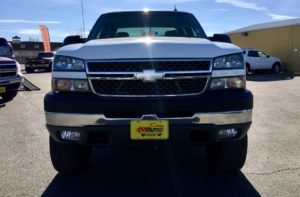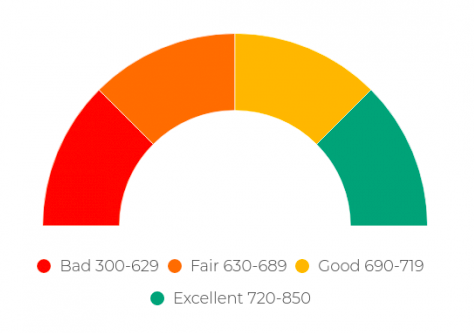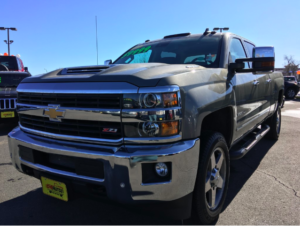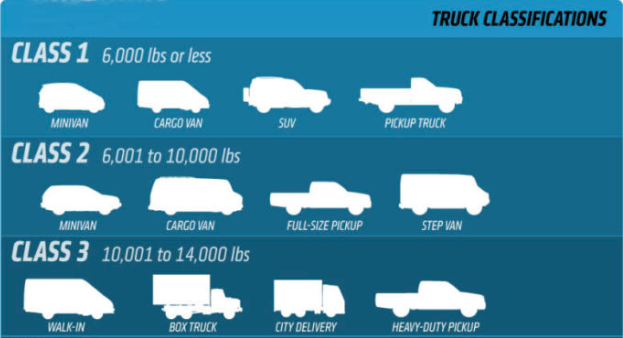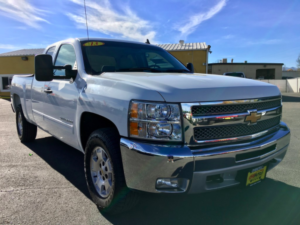Dye Autos Denver Area Truck and Automotive Blog
What Used Car Shoppers Need to Know About Credit Reports
 Your credit report is one of the most important elements of your financial life. Whether you’re buying a home or car or qualifying for a new apartment, your credit report influences decisions. We sell a lot of used trucks and cars, and we’ve learned over the years that used car shoppers need to know about credit reports.
Your credit report is one of the most important elements of your financial life. Whether you’re buying a home or car or qualifying for a new apartment, your credit report influences decisions. We sell a lot of used trucks and cars, and we’ve learned over the years that used car shoppers need to know about credit reports.
Knowing what’s in your credit report saves time and money. You make better decisions and things go smoother when you’re at the dealership.
Here are some tidbits you should know.
You can obtain a free copy of your credit report.
FTC (Federal Trade Commission) Website: You’re entitled to one free copy of your credit report every 12 months from each of the three nationwide credit reporting companies. Order online from annualcreditreport.com, the only authorized website for free credit reports, or call 1-877-322-8228. You will need to provide your name, address, social security number, and date of birth to verify your identity.
Some states like Colorado have laws that allow you to get a free credit report in addition to the free annual credit report you’re entitled to by Federal law.
Always know your credit score.
If you plan on using financing to buy a used pickup truck, your credit score is key to getting the lowest interest rates. Your credit score is a three-digit number that uses your credit information to assess how risky a borrower you are, and it can significantly influence how lenders decide the terms of your loan.
The higher your credit score, the lower your risk and the lower your interest rate. The lower your credit score, the riskier you are and the higher your interest rates. Be proactive in checking your credit score beforehand so you know where your credit stands before you apply for a loan.
Take advantage of Fair Isaac’s free credit education.
Put some time into understanding how credit works and how your credit scores will be impacted by your actions—late payments, opening a new line of credit, etc.
Fair Isaac Tools—creators of the FICO credit score—have several tools that can help you understand credit scores, including a free credit score estimator and a loan savings calculator.
All the “Credit Basics” are located at myfico.com
Understand all the ways you can boost your credit.
Here are the ways to bring up your credit score:
- Make sure your open accounts are in good standing.
- Pay all your bills on time – even those that aren’t’ on your report.
- Keep accounts out of collections.
- Reduce your balances and keep them low.
- Make sure your credit limits are reported correctly.
- Leave old accounts open and keep them active.
- Open new accounts sparingly.
- Have different types of accounts.
- Clean up any negative items.
Used car shoppers need to know about credit reports.
Because so many businesses use your credit report to make decisions about you, it’s important that you check your credit report at least once a year to be sure the information in your credit report is accurate.
Need help with choosing your dream pickup truck or car that fits your budget? Dye Autos can help. Get in touch through our site >>here<< or give us a call at (303) 286-1665!
Read More
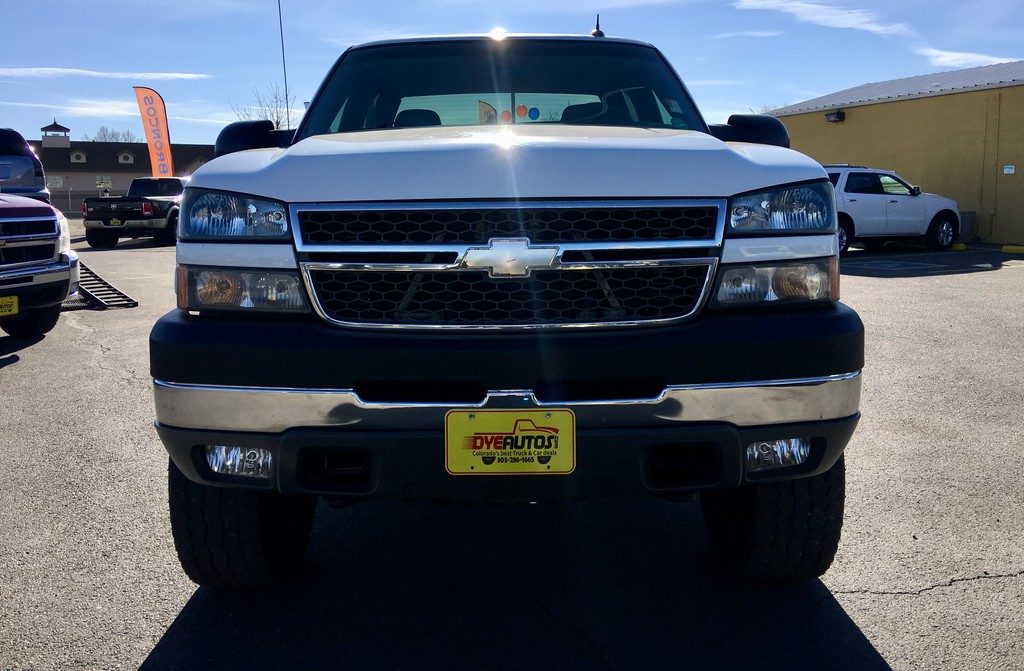 With the value and options available today, just about everyone can enjoy the benefits of a pickup truck. Whether your an outdoors type, a suburbanite, or somewhere in between, you can enjoy the toughness, power and utility of these marvels of modern automotive engineering.
With the value and options available today, just about everyone can enjoy the benefits of a pickup truck. Whether your an outdoors type, a suburbanite, or somewhere in between, you can enjoy the toughness, power and utility of these marvels of modern automotive engineering.
With pickup trucks claiming three spots out of ten on the list of top selling vehicles in 2017, there’s no question that trucks are hot.
Here’s a list of our top 10 reasons to buy a pickup truck.
1. Truck are no longer “penalty boxes.”
Today’s trucks ride like sedans.
Gone are the days when trucks had just a front seat and the ride was so bumpy you thought you might lose a kidney.
A super-smooth ride, roomy back seats, and four doors are standard now, as are many of the amenities on most sedans, including heated seats and keyless entry. The ride is comfortable and quiet (but ready to take on the world).
2. Trucks are the perfect weekend adventure vehicle.
Even though they’re a bit softer on the inside, pickup trucks are still designed to conquer difficult terrain. No matter what the road conditions, a modern pickup truck can push through and get you to your destination.
Whether you need to traverse an off-road trail to get to your favorite remote campsite or pound snowdrifts into submission to get to the ski resort, a good, properly equipped pickup can get you there.
3. Trucks tow your stuff.
Whether you’re taking the boat to Sloan’s Lake or Cherry Creek, the snowmobile to Steamboat Springs or Breckenridge, or your kids’ furniture to that first apartment, a pickup truck gives you the power to tow whatever you need. Many popular pickups can tow up to 12,000 pounds while the larger, heavy-duty models can pull up to 22,500 pounds or higher.
4. Trucks are affordable.
Used pickup truck models are especially affordable and often retain their value. At Dye Autos, we’ve got a large inventory of affordable pickup trucks for every budget.
Not sure what you can afford? Call us at (303) 286-1665.
5. Trucks grab attention.
In Denver, few vehicles command the same kind of attention as pickup trucks. For the type of person who demands that their vehicle “go big or go home” you can’t beat a pickup truck. Remember, being noticed is better than being ignored.
6. Trucks make you the hero of the neighborhood.
Your pickup truck can help score a few extra Good Samaritan credits by providing the grunt to give neighbors a tow when their cars get stuck in the snow. A pickup truck also makes it easier to help haul saplings — plus a jungle gym for the children — to the local park.
7. Trucks are safe.
First, you’re sitting high, so you can see better.
Today’s trucks also have the same safety features drivers look for in cars — four-wheel drive, electronic stability control system, air bags, dynamic braking, blind zone alerts, and so on. In addition, some have advanced safety features.
The high-strength steel body of some trucks is preferred by safety-conscious drivers over aluminum for a light but strong truck body.
8. Trucks are the ultimate tool box.
Trucks are now so common, it’s easy to overlook how important they are. But as they build and maintain the infrastructure that keeps society moving, their importance and usefulness as the ultimate tool just can’t be denied.
If there’s one tool that rules over all, it is the pickup truck. It’s both the ultimate tool and the ultimate toolbox; it can haul lumber, clear land and then serve as a repository for the tools needed to build a home.
9. Trucks are made for snow.
Winter tires on a sedan or a small hatchback will only get you so far. If the snow is deep enough, you can literally high-center a car once it gets packed underneath.
With the additional ground clearance afforded by a pickup, traversing 10 inches of fresh plow is no problem.
10. Trucks support ALL your activities.
Pickup trucks help you work hard and when it’s time to relax, they help you do that too!
Load your pickup truck bed with anything from lumber to furniture to camping equipment, and drive anywhere — even on the roughest terrain. You can even us your truck as a substitute family room while camping. Watch Netflix under the stars in your truck bed!
Did we give you enough reasons to buy a pickup truck?
You may even have some more reasons of your own but remember this: when it’s time to buy, you’d better call Dye!
Read More3 Steps to Prepare Your Credit to Buy a Used Pickup Truck
 If you’re looking to buy a used pickup truck, you’ve undoubtedly done your research in advance about the right model and options. The key to affording your dream ride works the same way: Get your financial situation under control before you make your final purchase decision.
If you’re looking to buy a used pickup truck, you’ve undoubtedly done your research in advance about the right model and options. The key to affording your dream ride works the same way: Get your financial situation under control before you make your final purchase decision.
Here are three crucial steps to take that will help you become more informed about your credit and help you set realistic expectations before you get to the dealership.
1. Know your credit score.
If you plan on using financing to buy a used pickup truck, your credit score is key to getting the lowest interest rates. Your credit score is a three-digit number that uses your credit information to assess how risky a borrower you are, and it can significantly influence how lenders decide the terms of your loan.
The higher your credit score, the lower your risk and the lower your interest rate. The lower your credit score, the riskier you are and the higher your interest rates. Be proactive in checking your credit score beforehand so you know where your credit stands before you apply for a loan.
Credit score ranges:
2. Get a free credit report.
When you check your credit score, be sure to focus on where you fall in comparison to other consumers, and what areas of your credit are strong — and what might need some work.
FTC (Federal Trade Commission) Website: You’re entitled to one free copy of your credit report every 12 months from each of the three nationwide credit reporting companies. Order online from annualcreditreport.com, the only authorized website for free credit reports, or call 1-877-322-8228. You will need to provide your name, address, social security number, and date of birth to verify your identity.
3. Take steps to clear any blemishes on your credit.
Everybody wants the best deal possible when they’re ready to buy a used pickup truck. Banks base their financing offers on how well you’ve paid your debts so it’s crucial to clear any negative items off your credit report.
FACTS:
- One in five Americans are shocked to learn there are errors on their credit report.
- 79% of consumers who disputed credit report errors were successful in removing them.
If you have any blemishes on your credit report, take steps now to resolve them.
Example: If you’ve got a $48 collection on your report, make every attempt to make it right. If it’s a mistake, call the company and try to rectify it with them first. If that doesn’t produce results, dispute it with the credit reporting agencies. All three – Equifax, Experian and TransUnion – have simple forms on their sites for disputes.
If the $48 collection is not a mistake, make every attempt to remedy it, including paying it. You’ll save much more than the $48 in finance charges that lenders will be forced to charge you if you leave it on your report.
Pro Tip: Our finance manager at Dye Autos says, “90% of the collections we see are due to medical charges/fees. Call the company and try to negotiate down the amount you owe and set up a doable payment plan so that things will begin to look more positive.”
Wrapping it all up…
Are you ready to buy a used pickup truck but need help preparing your credit? We have over 70 years experience in the car and truck financing business and we can help you! Call Dye Autos at (303) 286-1665 or fill out our handy contact form >>here<<.
Read More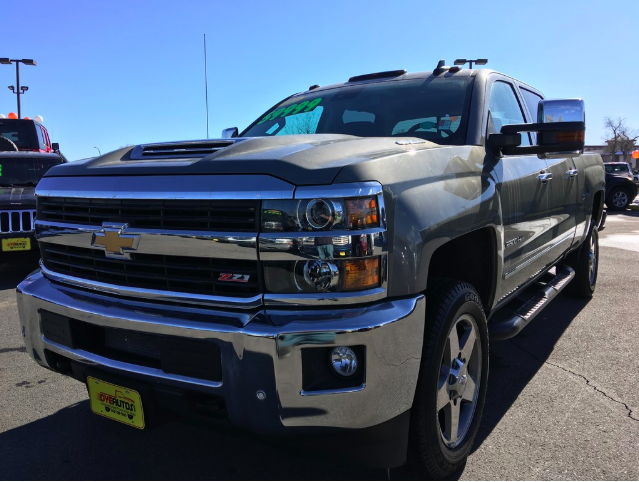 There are a lot of things to think about when considering the purchase of a used pickup truck.
There are a lot of things to think about when considering the purchase of a used pickup truck.
- What size truck is right for me?
- Will I be hauling or towing anything?
- Does my budget fit for what I need?
If you’ve been shopping, you know that a pickup truck isn’t just a pickup truck.
In this guide, we’ll review the three different pickup trucks that consumers purchase the most, along with their specific attributes and uses.
As always, please get in touch with us if you have questions. At Dye Autos, we have over 100 years combined experience selling pickup trucks and we’re happy to help you!
A word about GVWR.
The US DOT puts trucks into classes by “Gross Vehicle Weight Rating” (GVWR) ranked from 1 to 8 (smallest to largest). In our example here, we’re going to cover Class 1, 2 and 3. These classes exist for safety regulation, commercial designation, and registration purposes.
GVWR refers to the maximum operating weight a truck can possibly carry while driving including the truck itself. GVWR classes have nothing to do with what parts the truck is fitted with, how beefy the suspension is, or what the truck looks like. They are solely based on weight.
So if a truck’s GVWR is 10,000 pounds, that’s the most the manufacturer and government have certified the truck to possibly weigh with fuel, passengers, and cargo.
Class 1, 2 and 3 are considered “Light Duty” even though there are the heavy duty pickup trucks in the light duty classification.
Now, let’s talk about the three sizes of pickup trucks so that when you’re out there shopping, you’ll know which type to look at first.
Compact Pickup Truck
Compact pickup trucks are built on a separate chassis frame from their full-size brethren and usually offer a range of four-cylinder and V6 engines. Not as small as past generations, these trucks are sometimes referred to as midsized and it can get confusing.
Today’s smallest trucks aren’t very small at all. As many drivers have discovered, some are really midsize trucks with near full-size proportions.
The most popular compact trucks include the Toyota Tacoma, Nissan Frontier, Ford Explorer Sport Trac, and Honda Ridgeline.
Midsize Pickup Truck
Midsize pickup trucks are commonly used as general purpose passenger cars here in Colorado and the U.S. They are popular with construction and tradespeople along with everyday commuters and families. Because of this, there is demand for a pickup truck that is bigger than a compact, yet smaller and more fuel efficient than a full-size pickup. Enter the midsized truck!
The increased popularity of midsize trucks has led to the need for several different configurations and style of cab. Mid-size trucks can usually be found with single, extended, or crew cab configurations depending on what’s offered for the model and based on your needs.
Notable midsize trucks include the Chevrolet Colorado, GMC Canyon, Dodge Dakota, and Ford Explorer SportTrac.
Full-Size Pickup Truck
Full-size pickup trucks are the brawny workhorses of the pickup world.
They are larger and more rugged, and they ride higher off the ground than compacts/midsizes do. They also come in more configurations of cab type, bed size, and drivetrain.
The basic pickup truck is what used to be called the half-ton truck and is now often called 1500-series. Current models in this class include the Chevrolet Silverado 1500, Ram 1500, Ford F-150, GMC Sierra 1500, Nissan Titan, and Toyota Tundra. These form the backbone of the pickup truck market. They serve well as work trucks and, for many, as a family car substitute.
Heavier-duty pickup trucks, which may carry numerical designations such as 2500 or 3500, are configured for carrying very serious loads and for hauling fifth-wheel trailers, those with a hitch point in the center of the cargo bed. These are bulky trucks for the most demanding chores, making them great for hauling a huge trailer.
Summing it all up…
We know you have a lot of choices when it comes to where you buy your next pickup truck. That’s why we share our expertise with you so that when the time comes, you’ll consider Dye Autos! Give us a call – we’d love to help! (303) 286-1665.
If it’s a truck you wanna buy, you’d better call Dye!
Read More6 Pitfalls to Avoid When Trading in Your Used Pickup Truck
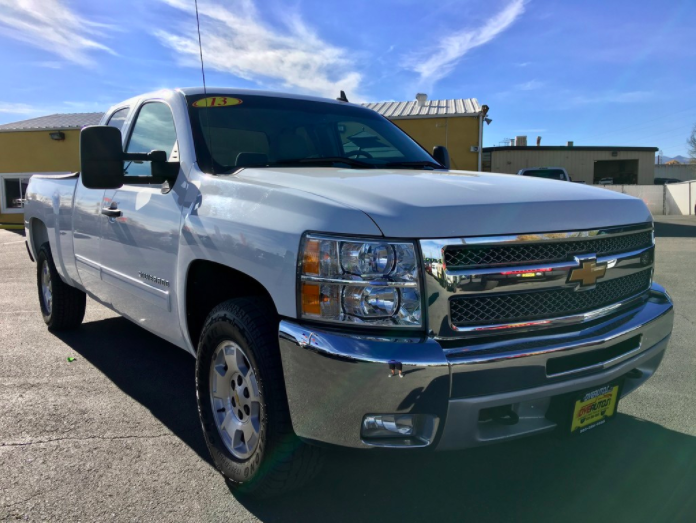 It’s time to purchase a “new” used truck, and you’re thinking about the trade-in value you could get on your current truck. Before you send your vehicle off to its next home, there are some things you need to know before trading in your used pickup truck.
It’s time to purchase a “new” used truck, and you’re thinking about the trade-in value you could get on your current truck. Before you send your vehicle off to its next home, there are some things you need to know before trading in your used pickup truck.
Over the years, our customers have always appreciated the information we provide. We believe that knowing all the facts makes for a better customer experience.
Here are 6 common mistakes to avoid when trading in your used pickup truck:
1. Overestimating or underestimating your vehicle’s value.
Trading in your used pickup truck can be challenging and not being realistic about its value will make things more difficult.
Be honest with yourself about your vehicle’s trade-in condition. The more forthright you are when using online appraisal tools like Edmunds.com or kbb.com, the better off you’ll be when it comes time to trade it in. Very often, people come into the dealership with an overly-optimistic idea of what their car is worth, only to find that their expectations weren’t realistic.
2. Bringing in a dirty truck.
Dealers like to see a clean vehicle. It says that you care about your used truck and its value.
Before trading in your used pickup truck, always make sure that your car looks clean and smells as clean as possible. Doing this often increases the value of your trade in.
3. Over-fixing your truck.
Dealerships tend to agree that your best option is to not concern yourself with making major fixes to your trade in. If it’s something as simple as touching up a little scratch or popping out a small dent, these are the kinds of fixes that are recommended.
Anything larger scale would not be worth your investment because the dealership will be able to repair issues for much less than you would be asked to pay at a shop.
4. Forgetting important documents.
Bring all vehicle paperwork with you. Here’s a handy list…
- Certificate of title (if you don’t have it, the DMV can tell you how to get it replaced). Note: if you have an outstanding loan on the vehicle, this will not apply since the bank has your certificate of title.
- Current registration.
- All your keys and the owner’s manual.
- If you still have an open loan, you’ll need to bring your account number or a payment stub.
- Maintenance records. These help support your claims about whatever prior damage your truck has had and the repairs it has undergone.
5. Not having all your truck’s accessories.
Trading in your used pickup truck means you are trading in everything that goes along with it. Make sure the original owner’s manual and any extra keys are in the vehicle when you arrive at the dealership. Dealers like used trucks that still have all the accessories and may even give you a better deal on your trade when everything is there.
6. Not knowing your vehicle’s history.
Being familiar with your vehicle’s history will help during your trade-in negotiations. Be “upfront” with the dealer, especially on any major problems that you know of, even if those problems were caused by the previous owner.
In Summary…
Avoiding the major pitfalls when trading in your used pickup truck can often save you money. Getting the best price for your trade in allows you more purchase power on the “new” used pickup truck you intend to buy.
We suggest going somewhere to get an honest and trusted opinion on your vehicle. At Dye Autos, we’ve been selling great used trucks in Denver for many years and we’d love the chance to help you. Give us a call at (303) 286-1665 or simply fill out our online form >>here<<. We’ll be in touch!
Read More


